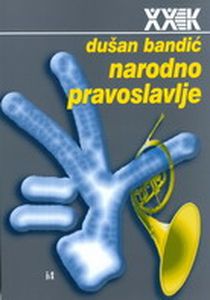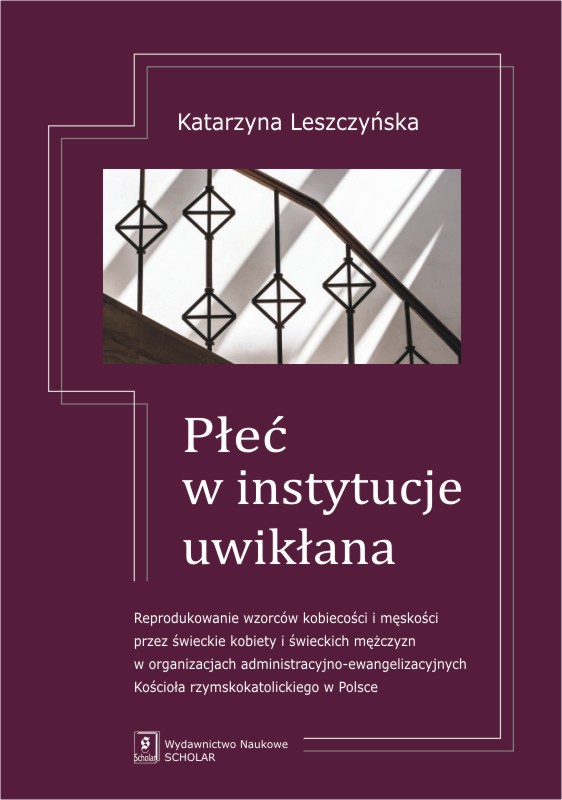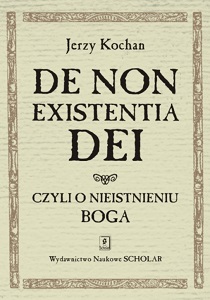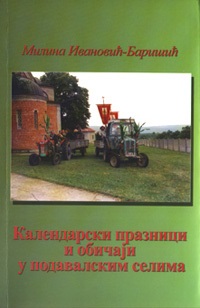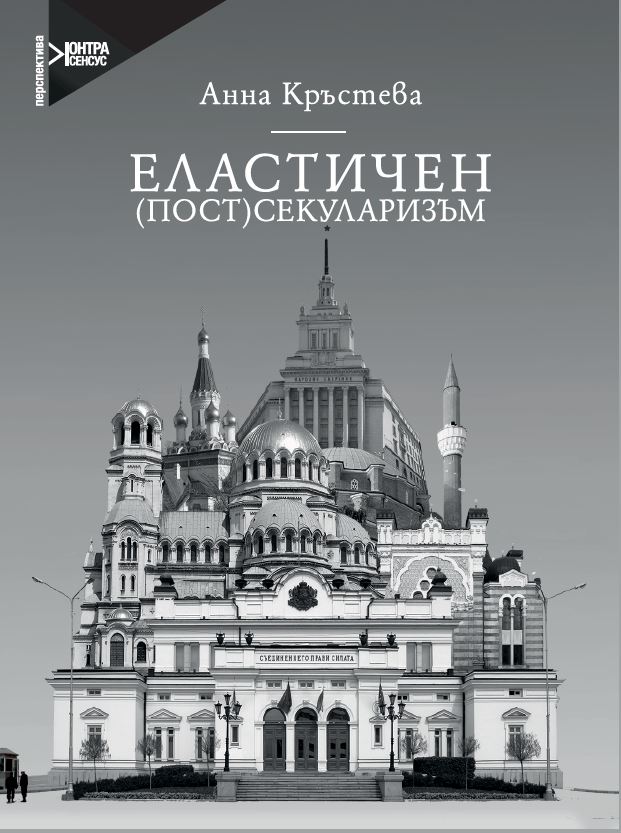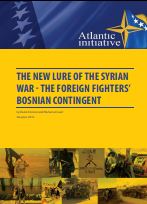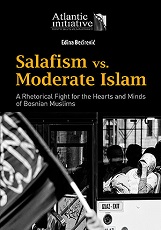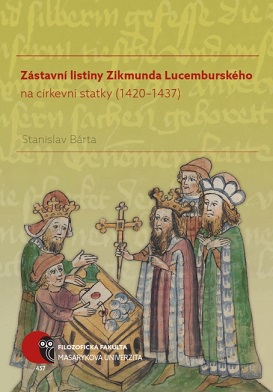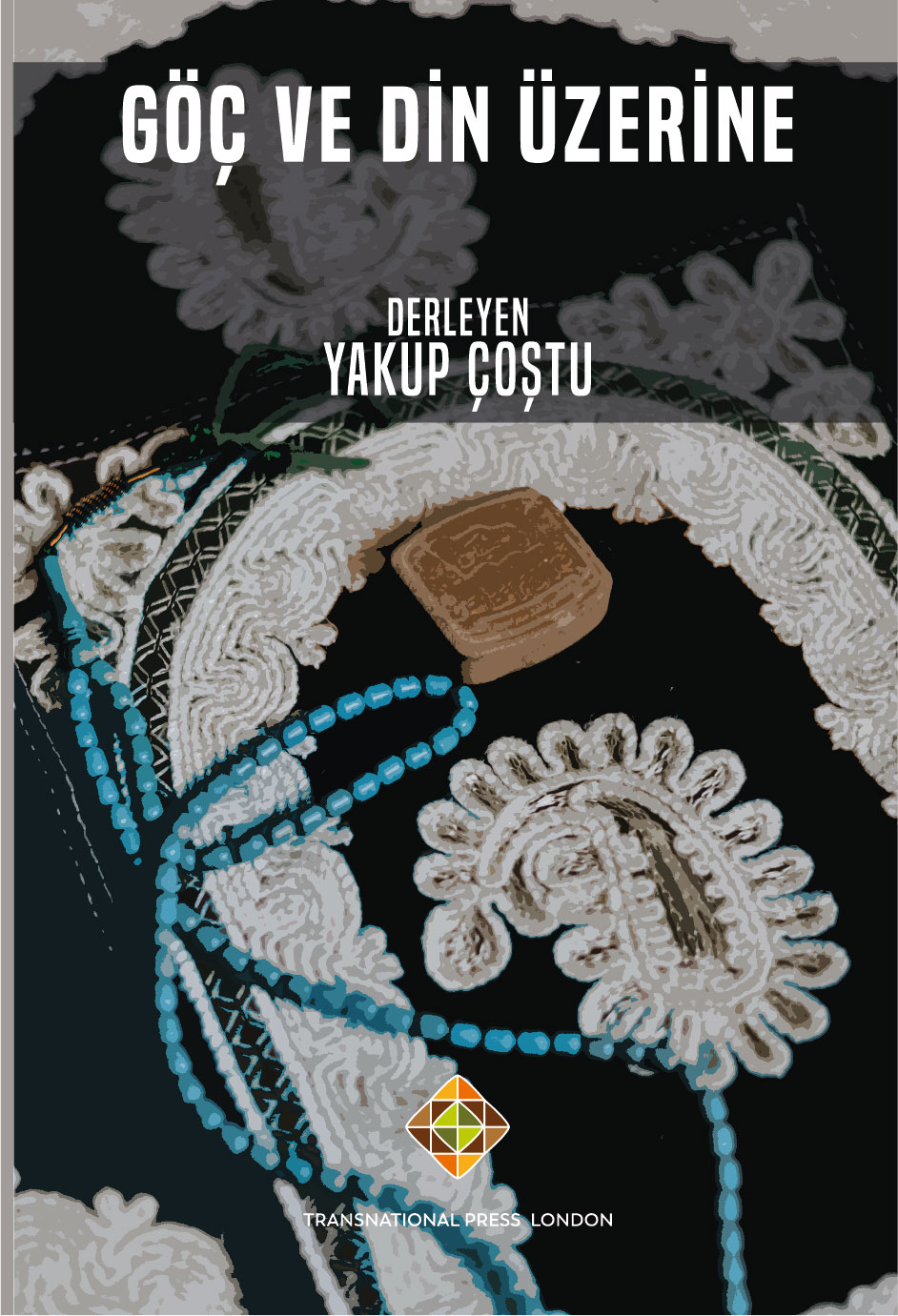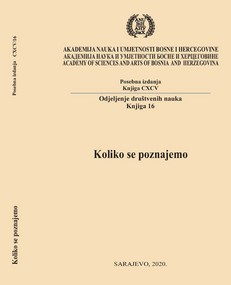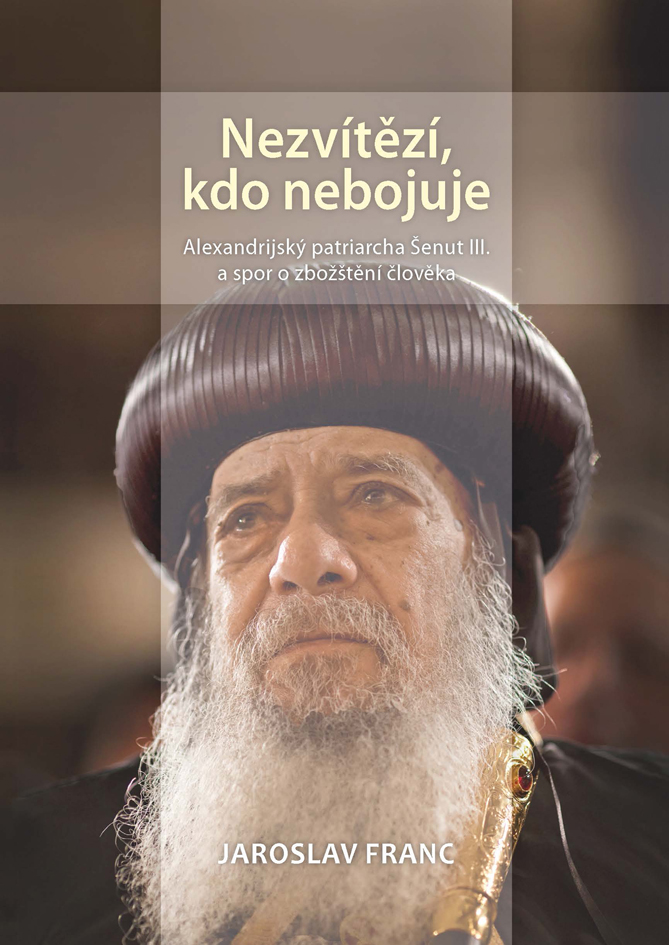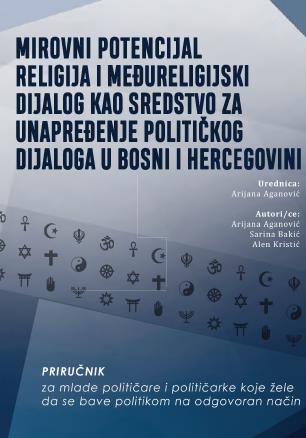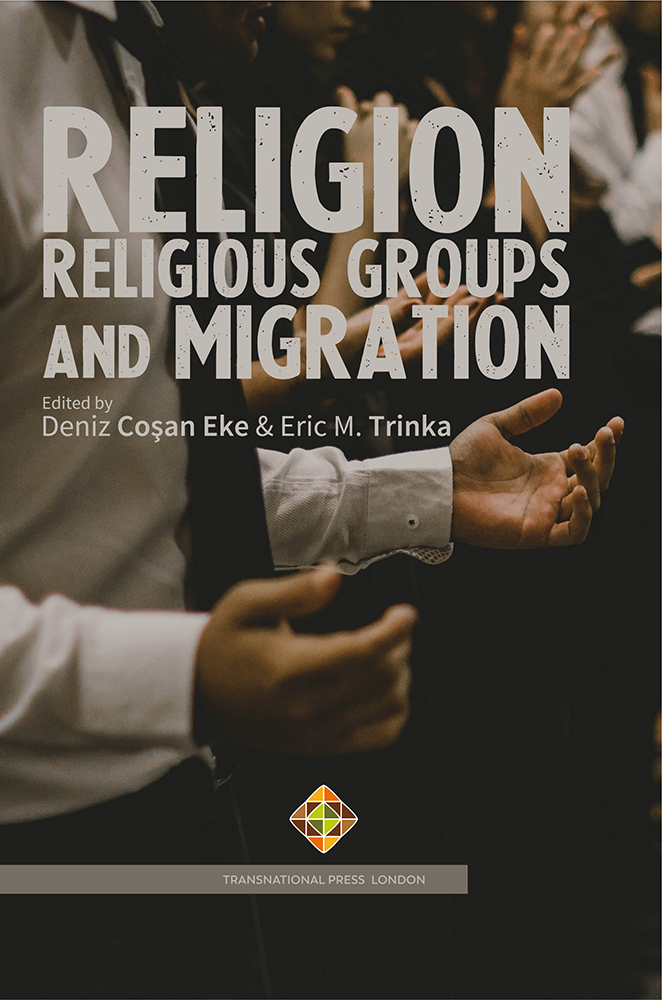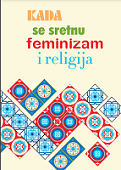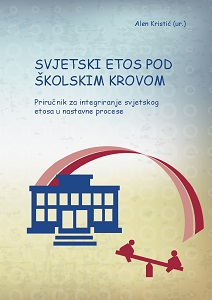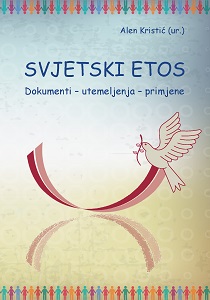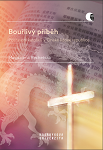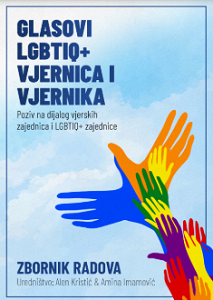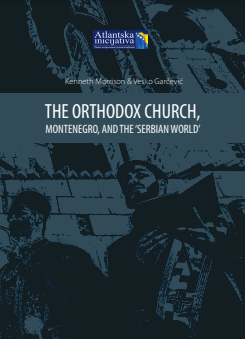Author(s): / Language(s): Bosnian
Publikacija „Svjetski etos pod školskim krovom: Priručnik za integriranje svjetskog etosa u nastavne procese“ nastala je u sklopu projekta TPO Fondacije iz Sarajeva „Integracija svjetskog etosa u odgojno-obrazovne strukture i procese u Bosni i Hercegovini“ iza kojeg je svojom stručno-financijskom pomoći stala i Zaklada svjetskog etosa iz Tübingena što čini utemeljenom nadu da ćemo uskoro raspolagati sličnim publikacijama i za druge aspekte projekta svjetskog etosa, i to u prvom redu za one koji se tiču politike, gospodarstva, ekologije, mirotvorstva i dijaloga religija. Kombinirajući teorijski i praktični pristup, ova publikacija po prvi put u našoj regiji na obuhvatan način skreće pozornost na pozitivni potencijal svjetskog etosa za odgojno-obrazovne procese i strukture u okrilju bosanskohercegovačkog društva koje je već stoljećima obilježeno stvarnošću od koje više ne može uteći niti jedno globalizirano društvo. Dakako, riječ je o višekulturnom, višenacionalnom i višereligijskom profilu čije je pozitivne potencijale moguće pretočiti u stvarnost jedino na osnovi sustavnog i ustrajnog posredovanja etičkih, međukulturalnih i međureligijskih kompetencija. U protivnom se taj profil, kako smo tome nažalost nerijetko svjedoci, izokreće u prokletstvo, kako za same pojedince tako i za različite kulturne, religiozne, nacionalne ili političke zajednice. Privlačne sile između projekta svjetskog etosa i odgojno-pedagoške sfere izviru iz fundamentalnog uvida da su pored obiteljskog okrilja upravo vrtići i škole središnja mjesta učenja etičkog ponašanja. Na to se nadovezuje ništa manje odsudan uvid da s procesom senzibiliziranja za vrijednosti i odgojem za odnos prema drugima koji će biti prožet poštovanjem treba početi što je moguće ranije, i to već u obiteljskom krugu a potom u vrtićima i školama. Dakle, fundamentalni cilj na koji je usmjeren projekt svjetskog etosa i pedagoškonastavni kadar senzibiliziran za taj projekt sažeto izražavaju dvije usko povezane nakane. S jedne je strane riječ o izoštravanju svijesti o moralu i vrijednostima kod djece i mladih u vrtićima i školama, što je nesumnjivo osnova za njihovo etičko mišljenje i djelovanje, a s druge strane o posredovanju orijentacijskog znanja o drugim religijama, kulturama i nacijama, kako bi se zarana izbjeglo da djeca i mladi postanu žrtve kobnih predrasuda a umjesto toga zarana budu osposobljeni za miroljubivu otvorenost za „tuđe“, ne odričući se pri tome „svoga“; dapače, raskrivajući da granice između „tuđeg“ i „svoga“ nisu nepropusne nego da i jedno i drugo svoje opstojanje i životnost duguju upravo dijaloškom prožimanju i uzajamnom obogaćivanju. Na toj pozadini postaje posve razvidno zašto je silna energija Zaklade svjetskog etosa iz Tübingena uložena upravo u to da s vrsnim pedagoško-nastavnim kadrom razvije niz materijala koji će omogućiti ne samo da pojedine škole ugrade ideju svjetskog etosa u nastavne programe nego i da postanu tzv. „škole svjetskog etosa“, i to tako što će se na sustavan način posvetiti potrazi za primjerenim načinima ukorjenjivanja i življenja načela i vrijednosti svjetskog etosa u školskoj svakodnevnici. Ovom se publikacijom konačno otvara mogućnost postupnoj integraciji svjetskog etosa u nastavne programe i – ništa manje važno – školsku svakodnevnicu bosanskohercegovačkih škola za što će trebati dosta vremena i strpljenja, no ništa nas više od naše nedavne ratne prošlosti ne uvjerava da se tom procesu treba posvetiti svim silama. Upravo će na tom tragu stručni tim TPO Fondacije iz Sarajeva uz pomoć ove publikacije i uz suradnju s nekoliko bosanskohercegovačkih pedagoških instituta započeti obuku nastavnog kadra srednjih škola s ciljem njihovog upoznavanja sa svjetskim etosom i osposobljavanja da načela i vrijednosti svjetskog etosa na stručan i sustavan način posreduju svojim učenicima i učenicama. Dakako, sve to s nadom da ćemo kroz nekoliko godina s radošću moći konstatirati da u Bosni i Hercegovini postoji ne samo niz škola s nastavnim programom u koji je ideja svjetskog etosa posve integrirana nego i s nekoliko tzv. „škola svjetskog etosa“. Prvo poglavlje ove publikacije „Svjetski etos kao odgojno-obrazovni projekt: teorijski pristup“ prvenstveno je posvećen pojašnjenju zbog čega je projekt svjetskog etosa od samog početka i u svim svojim aspektima pedagoški projekt na što već upućuju sintagme koje spadaju na samu srž tog projekta kao što su to „učiti se suživotu“, „učiti se razumijevanju kultura“ ili „učiti se življenju vrijednosti“. Dakako, nije propušteno izričito ukazati i na pozitivni potencijal svjetskog etosa za odgojno-obrazovne strukture i procese u bosanskohercegovačkom društvu. Drugo poglavlje ove publikacije „Svjetski etos kao odgojno-obrazovni projekt: praktični pristup“ posvećeno je konkretnom posredovanju načela i vrijednosti svjetskog etosa tijekom nastave. U prvom je tekstu riječ o nastavnoj jedinici posvećenoj svjetskom etosu za srednje škole koja se može praktično provesti tijekom četiri dvostruka školska sata ili tijekom osam školskih sati. Dakako, uz niz adaptacija ova se nastavna jedinica može izvesti čak i u višim razredima osnovne škole. Niti u prvom niti u drugom slučaju pitanje o tome u sklopu kojeg će se predmeta izvesti ova nastavna jedinica nije unaprijed determinirano, no kao „logična“ mjesta nameću se u prvom redu predmeti konfesionalnog vjeronauka, kulture religija, etike, demokracije ili sati razredne nastave. Upravo je na tu mogućnost usredotočen drugi tekst u kojem se nalaze sugestije kako bi se tijekom deset sati razredne nastave na sveobuhvatan način mlade moglo upoznati s idejom svjetskog etosa, i to s naglaskom na konkretnim primjenama svjetskog etosa u školskoj svakodnevnici, kao što je to primjerice izrada „zajedničkog razrednog etosa“. Važno je napomenuti da tekstovi u okviru zadataka u sklopu dva netom spomenuta teksta nisu obvezujući nego su doneseni samo kao ogledni primjeri, pri čemu je nastavnom kadru ostavljena mogućnost da sukladno specifičnim senzibilitetima u svom okruženju izaberu druge tekstove, bilo novinskog ili literarnog karaktera, za koje smatraju da će biti efektivniji za postizanje naznačenih ciljeva. Digitalni materijali o kojima se govori na nekoliko mjesta bit će dostupni na internet platformi TPO Fondacije posvećenoj tematskom sklopu svjetskog etosa. Zarad efektivnijeg korištenja ove publikacije, u njezinom se dodatku nalazi „Deklaracija o svjetskom etosu“ kao dokument na kojem počiva projekt svjetskog etosa i na koji se nerijetko pozivaju tekstovi od kojih je sačinjena ova publikacija. Nadamo se da će ova publikacija na presudan način doprinijeti sustavnom integriranju svjetskog etosa u odgojno-obrazovne strukture i procese u bosanskohercegovačkom društvu i da TPO Fondacija u tom nastojanju neće ostati usamljena. Dodatan razlog za tu nadu je i činjenica da će ova publikacija biti tiskana usporedo s knjigom „Svjetski etos: Dokumenti – utemeljenja – primjene“ koja pruža sustavan uvid u temeljne dokumente na kojima počiva projekt svjetskog etosa, pri čemu je posebna pozornost posvećena različitim načinima utemeljenja i primjene svjetskog etosa u suvremenim društvima sučeljenim s globalizacijom.
More...
